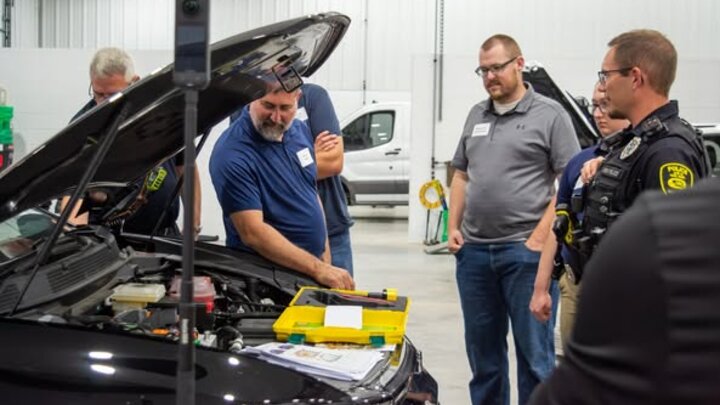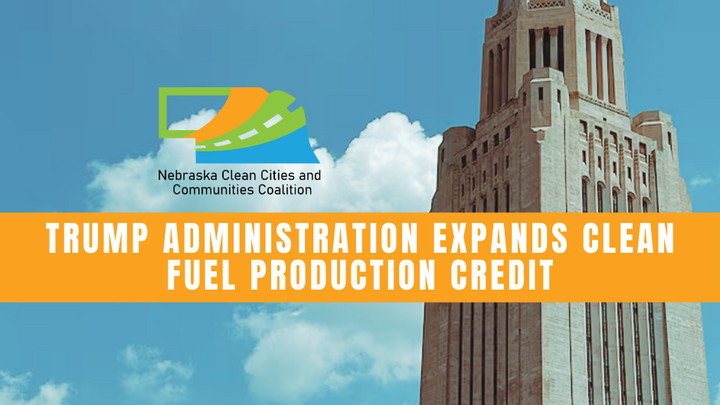Bills That Passed
LB20 – Electric Service for Agricultural Self-Generation Facilities
This bill aims to enhance the framework for renewable energy in Nebraska by defining key terms and establishing guidelines for electric service between local distribution systems and agricultural self-generation facilities. It introduces definitions for terms such as "agricultural self-generation facility," which refers to facilities producing electricity from renewable sources like methane, wind, solar, biomass, hydropower, or geothermal energy, and outlines specific criteria these facilities must meet, including a capacity limit of 100 kilowatts and the requirement that they are not used for net metering.
Additionally, the bill mandates that local distribution utilities cannot deny electric service to customers who own agricultural self-generation facilities. However, these owner-generators must comply with the interconnection requirements, safety standards, and service agreements set by the local distribution utility. The bill also clarifies that local distribution utilities can recover costs associated with serving these customers, ensuring that the utilities are not financially burdened by the provision of service to owner-generators.
LB43 – Renewable Energy Facilities and Foreign Electric Products
This bill ensures electric facilities near sensitive military locations, like Offutt Air Force Base, use domestic, non-foreign adversary-manufactured electronic-related equipment. It also clarifies notification requirements for electric suppliers on construction and acquisition of renewable energy facilities near military installations.
LB59 – Prohibit Certain Restrictions by State Agencies and Political Subdivisions
This bill prohibits state agencies, counties, and cities from restricting the energy source of motor vehicles or implementing vehicle emission standards. It aims to limit the ability of the Department of Environment and Energy to enact vehicle emission rules.
LB1368 – Nitrogen Reduction Incentive Program
While LB1368 does not directly address green transportation, it represents an early step in incentivizing sustainable agricultural practices that could eventually align with cleaner transportation solutions in the agricultural sector. This bill creates a nitrogen reduction incentive program overseen by the Nebraska Department of Natural Resources. The program provides an annual incentive of $10 per acre to farmers who reduce commercial fertilizer use by either 40 pounds per acre or 15%, verified through the incorporation of qualifying nutrient management products.
This bill is significant because reducing nitrogen fertilizer use can lower greenhouse gas emissions associated with agriculture, including nitrous oxide, a potent climate pollutant. Encouraging farmers to adopt more efficient nutrient management could also pave the way for future policies that integrate sustainable farming incentives with clean transportation initiatives, such as biofuel adoption, electric or hybrid farm equipment, and improved logistics systems that reduce carbon footprints. Passed in the 2024 legislative session; provisions implemented in 2025. However, proposals related to sustainable aviation fuel tax credits, railroad safety, and electric vehicle battery recycling did not pass.
Bills That Did Not Pass
LB8 – Change provisions relating to the tax credits under the Sustainable Aviation Fuel (SAF) Tax Credit Act
LB37 – Railroad Safety Act
LB309 – Safe Battery Collection and Recycling Act
LB1218 - Excise tax on commercial electric vehicle charging proposed
In Committee
LB503 - Solar and wind energy companies would pay additional taxes to counties in exchange for standardized permitting requirements. Would allow counties to be designated as "American Energy Friendly Counties," which would essentially mean they adopt more favorable regulations for privately developed renewable energy projects
LB121 - Prohibit land disposal of solar panels and wind turbine blades and the component parts of solar panels and wind turbine blades
LB35 - Change provisions relating to the requirements for certain exemptions for privately developed renewable energy generation facilities
LB23 - Provide for grants for bike-sharing programs
LR22CA - the Nebraska Green Amendment would legally guarantee all Nebraskans the right to a clean and healthy environment—including clean water, air, and healthy soils—and designate the state and local governments as trustees of the state’s natural resources.
The next Nebraska legislative session will start on January 8, 2025. It will be a 90-day session. The session will be the first of the biennium and will involve setting the state budget. Use the resources below to connect with lawmakers and advocate for green transportation solutions.
Nebraska Legislature Resources and Tools:
- Nebraska Legislative Calendar
- Bill Tracker
- Watch Legislative Sessions and Hearings Live
- Unicameral Update
Engage Nebraska Lawmakers
- Find your Senator and District
- 2025 Nebraska Legislative Roster
- Federal Delegation
- Committees
- Speaker Announcements




